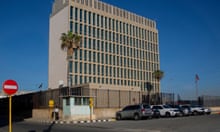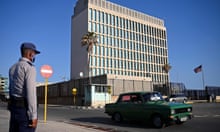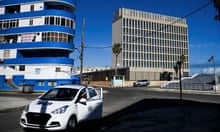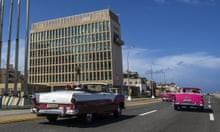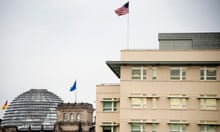There have been more than 130 incidents of unexplained brain injury known as Havana syndrome among US diplomats, spies and defence officials, some of them within the past few weeks, it has been reported.
The New York Times said three CIA officers had reported serious symptoms since December, following overseas assignments, requiring outpatient treatment at the Walter Reed military hospital in Washington. One episode was within the past two weeks.
The reported number of cases is about 70 more than had previously been acknowledged.
Mark Zaid, who represents some former officials afflicted by Havana syndrome, said he had been contacted by more people who believed they had been affected.
“The numbers are definitely increasing,” he said.
US officials confirmed that there continued to be fresh cases under review but cautioned that the publicity given to previous Havana syndrome cases had led some people to reinterpret symptoms they were suffering and wonder whether they may have been victims of some form of attack they had not previously suspected. So the number of new cases did not necessarily reflect the number of new incidents.
In December, the National Academy of Sciences published a report saying that the brain injuries suffered by US government employees in Cuba and China were most likely the result of some form of directed energy.
Cheryl Rofer, a former chemist at the Los Alamos National Laboratory, has questioned the study’s conclusions, and the claim by victims and some experts that some kind of microwave weapon developed by an adversary is responsible for Havana syndrome.
“The evidence for microwave effects of the type categorized as Havana syndrome is exceedingly weak,” Rofer wrote in Foreign Policy. “No proponent of the idea has outlined how the weapon would actually work. No evidence has been offered that such a weapon has been developed by any nation. Extraordinary claims require extraordinary evidence, and no evidence has been offered to support the existence of this mystery weapon.”



